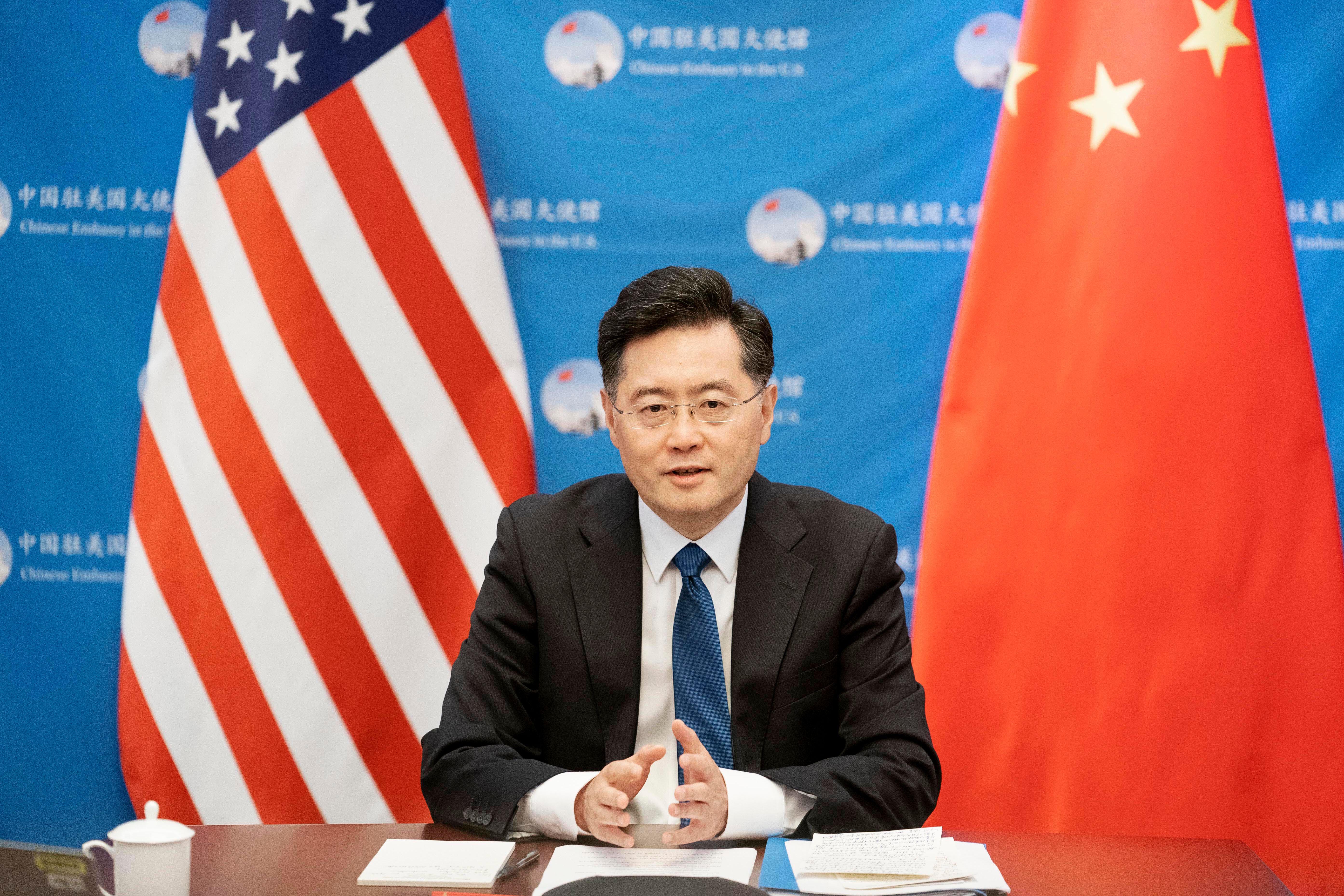What does a new foreign minister mean for relations between the US and China?
The appointment of Qin Gang could herald an attitude shift which may prove fruitful, writes Chris Stevenson


When you think about the diplomatic relationship between the US and China, it is often the myriad disagreements – from the status of Taiwan to trade – that come to mind first.
The various spats have been a regular feature of our news coverage, in part because butting heads has been a significant part of the political back-and-forth between the two countries.
The appointment of Qin Gang as China’s foreign minister, having previously been ambassador to the US, is an interesting development when it comes to the working relationship between the two nations.
The US secretary of state, Antony Blinken, spoke with Mr Qin over the weekend and is said to have discussed the need to maintain open lines of communication. China’s foreign ministry also acknowledged the call, saying that Mr Qin had said he looked forward to maintaining close working ties with Mr Blinken in his new role.
It comes after Mr Qin’s predecessor as foreign minister, Wang Yi, wrote an essay published in the official party journal, Seeking Truth, that China and the US “should establish a way of getting along with mutual respect, peaceful coexistence and win-win cooperation and put China-US relations back on the right track of health and stability”.
We shall see if much changes, although an attitude shift by both countries may prove fruitful. Although it won’t be plain sailing – in recent days the US military said a Chinese fighter jet flew dangerously close to an Air Force plane over the South China Sea, essentially offering a rebuke. Beijing frequently challenges military aircraft from the US and its allies over the strategically vital South China Sea, which China claims in its entirety.
South China was also referenced by the administrator of Nasa in a recent interview. Bill Nelson said that the US is locked in a space race with Beijing and the country needs to “watch out” that its rival does not try to dominate lunar resources.
“And it is true that we better watch out that [China] don’t get to a place on the moon under the guise of scientific research. And it is not beyond the realm of possibility that they say, ‘Keep out, we’re here, this is our territory’,” Mr Nelson said. He cited the actions of Beijing in the South China Sea as a sign of the country’s territorial ambition.
It appears there may be some way to go until Washington-Beijing relations are as cordial as both countries say they want them to be. But I’d love to hear your thoughts, as ever, via our letters page.
Yours
Chris Stevenson
Premium editor



Join our commenting forum
Join thought-provoking conversations, follow other Independent readers and see their replies
Comments